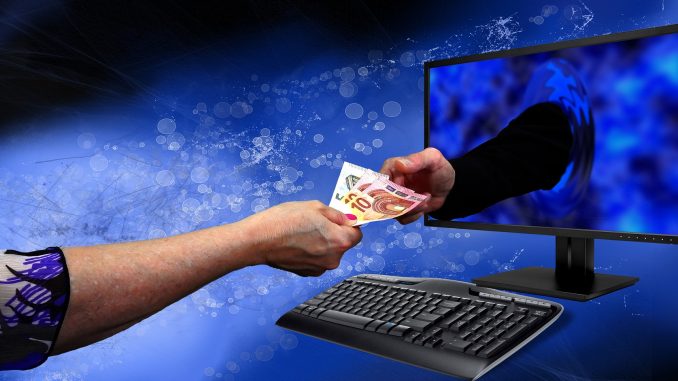
As shoppers continue to make the most of this year’s Black Friday deals, the risk of online scams is higher than ever. Online retailers have started the holiday sales even earlier this year, and this is a great opportunity for consumers to save money – but it’s still important to stay safe.
When looking through the many deals, it’s also necessary to protect your personal information.
Here’s how to stay safe and avoid scams and hackers when shopping online:
The risks of online shopping
Internet use is rapidly increasing and nearly 5 billion people now have internet access globally. The number of people making online purchases is also rising. In 2021, e-retail sales surpassed 5.2 trillion U.S. dollars worldwide, and this figure is expected to grow in the coming years.
However, this has brought added risks to shoppers. According to a study by cybersecurity company Norton, more consumers than ever are now concerned about their online security.
The study found that although most people are planning to shop online this holiday season, only 30% said that they feel confident about staying safe. Another 40% said they would be willing to put their personal information at risk if it meant getting a great deal on the perfect product.
The researchers from Norton said: “We want to help bring back the joy of the holiday season and empower everyone with the resources they need to shop online safely. From inflation to supply chain issues, there are so many things out of our control this holiday season.
Taking the time to pause and take proactive steps to protect your digital and financial life before Cyber Monday is one way everyone can take back control.”
Tips for staying safe
The Cybersecurity and Infrastructure Security Agency (CISA) provides some advice for consumers who are trying to stay safe when shopping online.
According to the agency, one of the key ways to stay safe is to make sure devices are updated when needed, and consumers should enable automatic updates on their smartphones and laptops. Using the most up-to-date operating system will help to keep your information protected and less vulnerable to hackers.
It also advises that you use a strong password and two-factor authentication if possible, as well as check unknown businesses on websites like Trustpilot.
Experts also recommend not saving your personal information like passwords and credit card information on any website. Instead, using a digital wallet like Apple Pay or Google Pay can be a more secure option, as the website can’t have direct access to your information.
Most digital wallets also provide their own dispute resolution if something goes wrong. However, it’s important to check their terms and conditions when you sign up.
The National Cyber Security Centre (NSCS) also advises consumers to do some research on online retailers first before making a purchase. Reputable companies should be listed on consumer websites and should also have information on how they handle personal data.
It’s becoming increasingly common for criminals to target consumers by text message or social media. Online scammers are using these platforms to steal personal information and data or money from social media users and this poses a risk to shoppers.
The NSCS advises that if you receive an email or text about an offer, this could contain links to a fake website. To protect against this, the agency advises either to type in the website address of the company directly into the address bar or search for it on a trusted search engine and follow the results.
Another important piece of advice is that you should use a credit card when shopping online if you have one. Most credit card providers give extra protection for online purchases. This means that if you are a victim of fraud, you are more likely to get your money back.
In addition to this, if you use a credit card and your payment details are stolen, your main bank account should remain unaffected. This is particularly important if you have a large amount of money in your current account, as this can become vulnerable if your information is stolen.
Keeping your accounts secure
When trying to keep your information safe, the first thing to remember is to only provide the
minimum amount of information required on online platforms. This is usually your name, delivery address, and payment information.
Using a platform like PayPal means you don’t need to give the retailer as much information, as you can usually complete your purchase without an account.
There’s also a risk that hackers could steal your passwords and use them to access your accounts, so make sure your passwords are difficult to guess and different for each platform.
You can also protect your accounts by switching on 2-step verification (2SV). It’s also referred to as ‘two-factor authentication’ or ‘multi-factor authentication. This will ask you to confirm your identity in a second way, which stops hackers from accessing your accounts, even if they manage to get hold of your password.
It can be difficult to spot a scam sometimes, but if you think your information has been compromised, it’s important to ask fast and contact your bank. You should also block your cards as quickly as possible so they can’t be used by hackers.
With so many major stores running sales right now and consumers frantically looking for deals, this is the prime time for scammers to strike. So, it’s important to protect your information. If you’re unsure about a message or website, doing more research first is a must.


Leave a Reply